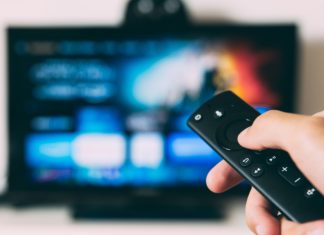U.S. Hispanic & African-American Voters More Likely to Get Political News via Mobile
‘Political Influentials’ Much More Reliant on Digital Media than TV
PALM DESERT, Calif. – Digital media has reached parity with TV as a primary information source about presidential candidates (61% for both digital and TV) and political issues (67% for digital vs. 69% for TV) among registered U.S. voters, according to “The Race for the White House 2016: Registered Voters and Media and Information During the Primaries,” a new research study from the Interactive Advertising Bureau (IAB). The findings demonstrate that digital is a critical medium for reaching U.S. voters during the primaries, with three-quarters of those who have seen a candidate’s online or mobile ad taking action afterwards, such as searching for more information about the candidate or starting an in-person conversation about them.
“As the election season heats up, it is abundantly clear that candidates and advocacy groups must harness the informational and relationship-building power of digital media to succeed.”
More than a third (35%) of registered voters say digital will be their most important method for getting candidate information during this election season. These U.S. voters are more likely to be younger (35% vs. 23% total), to take action after seeing an online political ad (71% vs. 53% total), stream the debates (30% vs. 20% total), and to vote in the primaries (90% vs. 85% total).
Delving deeper into the results, the study reveals that certain demographic groups are more reliant on mobile for political news and views than others, particularly U.S. Hispanics and African-Americans. The report shows that 67 percent of Hispanic voters and 60 percent of African-American voters visit political sites on a mobile device as opposed to 49 percent of voters overall. In addition, Hispanic voters are significantly more likely to take an action after viewing a digital or mobile ad for a candidate, with 87 percent of them saying they have done so.
Making the case even stronger for the importance of digital media in the current election cycle, registered voters who are more heavily involved in politics and public affairs, called “Political Influentials” in the study, are particularly dependent on digital media for their political information (78% for digital vs. 63% for TV).
The report also shows that social media plays a key role in the political process, with 28 percent of registered voters saying they get information on candidates via social platforms. Other social media findings include:
- 31% of registered voters read political articles and links shared by their friends on social media
- 25% of registered voters have seen an ad for a candidate on social media
- 24% of registered voters have “defriended” or “unfollowed” someone because of his or her political posts on social media platforms
“The results of the study demonstrate the vital role of digital media in the political process and substantiate that digital is on par with TV among registered voters as a key resource,” said Sherrill Mane, Senior Vice President of Research, Analytics, and Measurement, IAB. “As the election season heats up, it is abundantly clear that candidates and advocacy groups must harness the informational and relationship-building power of digital media to succeed.”
“U.S. Hispanic and African-American voters are crucial to candidates, and this research shows that mobile is the best way to reach them,” said Anna Bager, Senior Vice President and General Manager, Mobile and Video, IAB.
“The Race for the White House 2016: Registered Voters and Media and Information During the Primaries” was released during the 2016 IAB Annual Leadership Meeting at the JW Marriott Desert Springs Resort and Spa in Palm Desert, CA. To download the complete study, go to iab.com/electionstudy.
Methodology
The IAB commissioned Vision Critical to conduct this online study with 18+ U.S. registered voters in November 2015. The total sample of 1,513 is nationally representative of this registered voter population by age, gender, race, and ethnicity. Additional Hispanic registered voters were sampled to ensure statistical robustness in analyzing this important group of voters.
About IAB
The Interactive Advertising Bureau (IAB) empowers the media and marketing industries to thrive in the digital economy. It is comprised of more than 650 leading media and technology companies that are responsible for selling, delivering, and optimizing digital advertising or marketing campaigns. Together, they account for 86 percent of online advertising in the United States. Working with its member companies, the IAB develops technical standards and best practices and fields critical research on interactive advertising, while also educating brands, agencies, and the wider business community on the importance of digital marketing. The organization is committed to professional development and elevating the knowledge, skills, expertise, and diversity of the workforce across the industry. Through the work of its public policy office in Washington, D.C., the IAB advocates for its members and promotes the value of the interactive advertising industry to legislators and policymakers. Founded in 1996, the IAB is headquartered in New York City and has a West Coast office in San Francisco.
via BusinessWire








